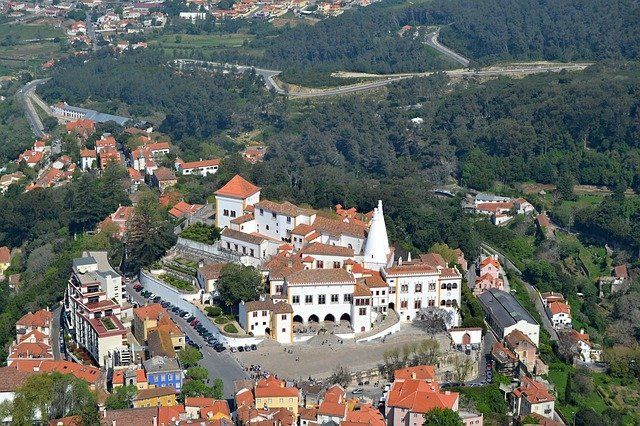The influence of the Reformation, which had such an effect on other parts of Europe and the world, did not touch Portugal until much later. From 1580 to 1640 Portugal was ruled by Spain and the propogation of the Reformed faith was forbidden. Even after Portugal gained independence from Spain, the kings of Portugal, who were strongly Catholic, continued to support the Inquisition.
Remarkable men
In spite of the opposition, there were some remarkable people who did all they could to introduce the teachings of the Reformers into Portugal. The sixteenth-century writer and historian Damião Góis travelled widely in Europe between 1529 and 1545. This gave him the opportunity to meet many ordinary people, and also the great and noble, many of whom had come to accept the teachings of the Reformers. It is probably as a result of these contacts during his travels that he was greatly influenced by the message of the Reformation.
When Damião Góis returned to Portugal he took up residence in the royal court, but his writings greatly disturbed the nobility and the clergy. He was therefore arrested in 1571 and died three years later.
Another prominent figure who suffered for the gospel around this period was Francisco Xavier de Oliveira. As result of persecution he was forced to flee the country.

The Bible in Portuguese
In spite of the opposition and persecution, it was a Protestant who first translated the Bible into Portuguese.
João Ferreira de Almeida was born in 1628 near Magualde, a small village in the north of the country. While still very young, aged only thirteen years, and having lost both his father and mother, he moved to Holland. The reason for this move is not clear, but it is not impossible that he wanted to get away from the rigid upbringing of his uncle, a Catholic priest. He did not stay very long in Holland. His next move was to the island of Java (Indonesia) which the Dutch had just conquered. During this journey he read a small book entitled The difference between the Reformed Church and the Church of Rome. It was through this book that he came to understand more of the teaching of Scripture and as a result he became a member of the Dutch Reformed Church when he arrived in Java.
He soon became convinced of the necessity for everyone to be able to read the Scriptures for themselves and he therefore decided to translate the Scriptures into Portuguese for his own people. To enable him to do this he began studying Greek and Hebrew, and once he had mastered these languages he began translating.
In addition to his translation work, the Dutch Reformed Church sent him as a missionary to India and Sri Lanka. In these countries there were areas where Portuguese was spoken and he was able to preach the gospel in his native language.

First Protestant pastor
In 1656, while back in Java, he was ordained as a pastor of the Dutch Reformed Church. He thus became the first Portuguese to be ordained as a Protestant pastor, although he did not live in the country at the time. He died on 6 August 1691 in Batavia, the capital of Java (now called Djakarta). Several years after his death the Portuguese Inquisition had him burned in effigy.
A bleak period
During the centuries which followed, Protestantism all but disappeared in Portugal until the end of the nineteenth century. It is true that because of the strong links with Britain during this period there was always a Protestant Church in Portugal, but it was only for British ex-patriots. The Portuguese were forbidden to attend a Protestant church of any kind.

Unfortunately the Protestantism which eventually came to Portugal, first of all to the island of Madeira and eventually to the mainland, was anything but pure in doctrine. Denominationally it was mostly Presbyterian, but it was strongly influenced by Arminianism. This has been the dominant influence in the country ever since.
Twentieth-century encouragements
The 20 century has nevertheless seen the arrival in Portugal of some pastors, mostly Baptist, who preached the gospel of sovereign grace. The majority came form the United States. Through their influence a number of sound books have been published in Portuguese, but unfortunately their ministry has not had the effect on the country which we would like to see.
Today there remains a small sound Calvinistic witness in the country. This is centralized through the Interdenominational Fellowship for the Reformed Faith which is composed of pastors and church leaders from several parts of the country. They have organized the Bible School of the Reformed Faith which uses the buildings of the first Baptist Church of Lisbon. There are around fifteen students each year from churches and denominations who desire to deepen their understanding of the Scriptures. They attend classes on a part-time basis.
The Fellowship also produces Sunday school material. They consider this to be necessary since it is difficult to find lessons in Portuguese which are solidly grounded in a true interpretation of Scripture.

Each year, on 31 October, the Fellowship specifically remembers the influence of the Reformers in a special service held in one of the churches in the capital. Such services are also sometimes held in other regions. In 1996 they organized a Reformation celebration in the Town Hall in Sintra, an ancient and important city well known to many visitors to Portugal.
Superficial churches
In spite of the efforts and influence of the Fellowship for the Reformed Faith and a small number of other churches which have come under the influence of Calvinistic pastors, the vast majority of the churches which call themselves ‘evangelical’ remain very superficial in their understanding of the Scriptures. Many so-called Protestants are unashamedly liberal in their theology.
In recent years the situation has worsened with the arrival of a strong charismatic influence, much of it extreme in character. One group of charismatics even put up candidates in the recent government elections and by this means they were able to have free time on national television. There is, however, nothing in common between their teaching and that of the historic Reformed faith, still faithfully preached by a few.
God still sovereign
True believers in Portugal are faced with an uphill task, but history and Scripture clearly show that God is still sovereign. In spite of the fragility and sinfulness of men, God is still at work for the glory of his Name and the salvation of his elect whom he chose from all eternity. He knows where they are and we are confident that he will bring them to salvation in Christ through the faithful proclamation of the gospel and the work of his Holy Spirit.






